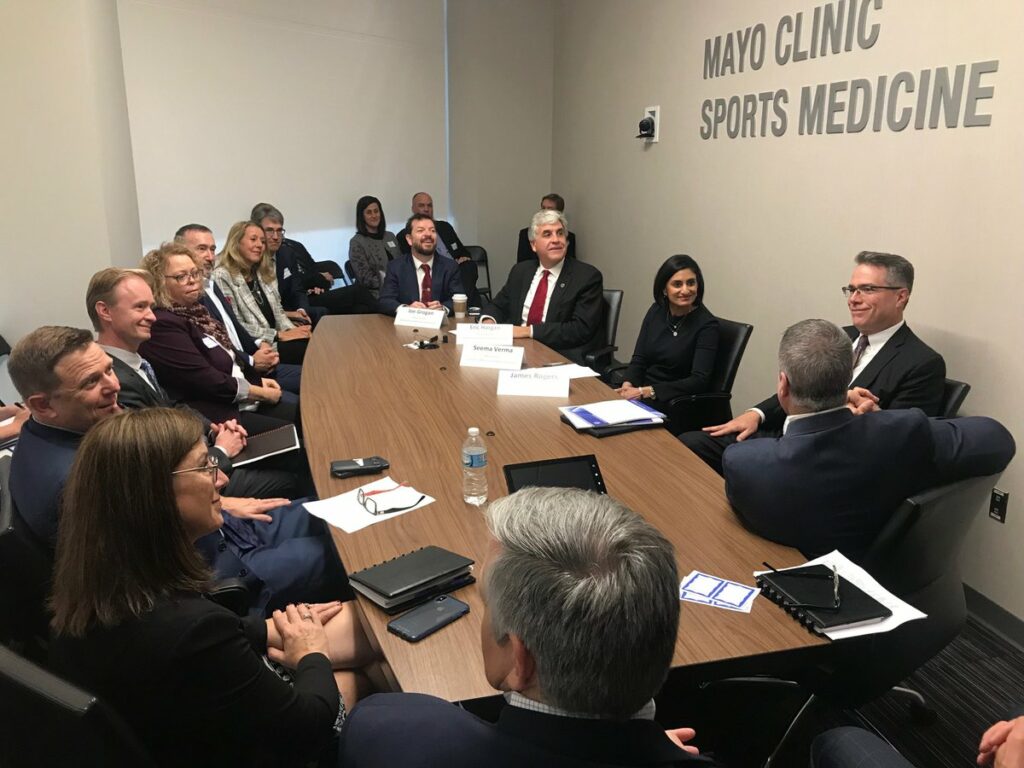Standing in Mayo Clinic’s downtown Minneapolis facility, Centers for Medicare and Medicaid Services Administrator Seema Verma, Deputy Secretary of the Department of Health and Human Services Eric D. Hargan, and Director of White House Domestic Policy Council Joe Grogan announced proposed rule changes to the Medicare physician self-referral law (commonly known as Stark Law) and the federal Anti-Kickback Statute (AKS) to help accelerate healthcare’s move from volume to value-based care.

Medical Alley has been a driving force in the move to value-based care with healthcare giants like Blue Cross and Blue Shield of Minnesota, Mayo Clinic, and Medtronic creating value-based arrangements that have improved outcomes for patients while simultaneously lowering their costs thanks to efficiently delivered care and aligned incentives. The proposed regulations will allow agreements like these to become common thanks to clarified and modernized language and the recognition that healthcare’s future is value-based and collaborative.
“As the global epicenter of health innovation and care, Medical Alley is home to world-leading care providers, payers, and health technology organizations that have been eagerly awaiting changes like the ones proposed today as they drive the move from volume to value. These proposed changes will play a pivotal role in launching new initiatives that will change the face of healthcare,” said Medical Alley Association President and CEO Shaye Mandle. “With our Healthcare Transformation Initiative underway, and this new opportunity to collaborate in ways that organizations could not previously, we expect to see industry leaders charting a new course for the U.S. healthcare system and a dramatic acceleration in the creation of value-based arrangements.”
The proposed rule change comes after an open request for information period in 2018 in which healthcare leaders from across the country could submit their issues with Stark Law and AKS. The Medical Alley Association submitted a comment on behalf of our community that focused on three areas where we believed changes to the two rules could accelerate the move to value-based care:
- Eliminate barriers to care coordination and value-based arrangements by clarifying the definition of “Fair Market Value”
- Modify existing, or create new, safe harbors to allow for use of devices for remote patient monitoring
- Ensure existing safe harbors allow for proper adoption of needed cybersecurity upgrades
All three areas of concern were addressed in the proposed changes with language beneficial to patients and to Medical Alley companies. We are thankful to HHS for being responsive to the needs of innovative companies and for creating a way for innovation to flourish while also safeguarding patients.
As
always, we are proud to support this community through advocacy work at both
the state and federal levels. Should these changes come to pass, we believe they
will help Medical Alley companies drive the transformation of healthcare from
volume to value and further cement the region’s place as the global epicenter
of health innovation and care.
